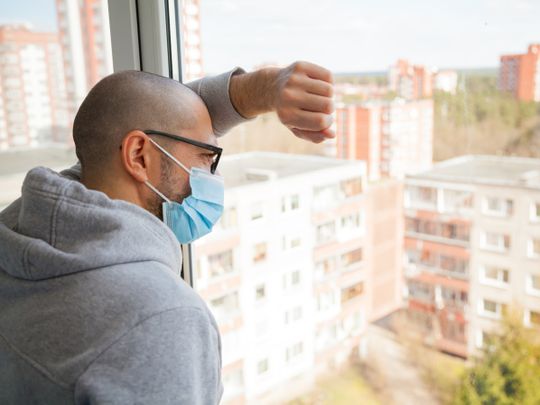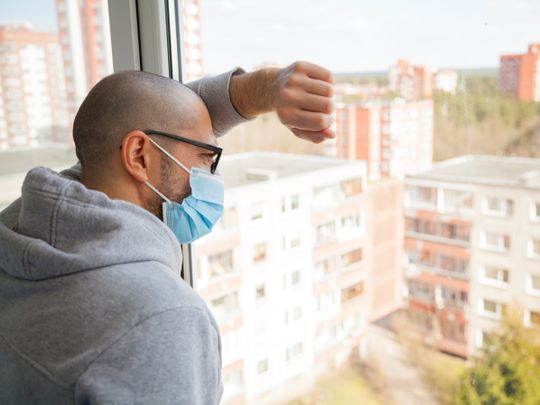Health care community hails update in Dubai’s COVID-19 quarantine guidelines

Image Credit:
Dubai: In a set of revised COVID-19 management guidelines, issued by the Dubai Health Authority (DHA) on Tuesday, the quarantine period for asymptomatic COVID-19 positive cases and those who have been in close contact with such cases was reduced to 10 days. The earlier 14-day quarantine is however still valid in case of moderate, severe and critically ill COVID-19 patients.
DHA very specifically stated that individuals who have come in close contact with a confirmed COVID-19 case but do not develop any symptoms should also abide by the new quarantine period of 10 days, starting from the day they were exposed to a confirmed case.
What does the update mean?
Dr Shahjahan PA, Specialist Internal Medicine at the Aster Clinic, Qusais, said, “Isolation and quarantine help limit the spread of the disease and ensure that the carrier doesn’t pass it on to others. It also ensures that the lifespan of the contagious virus is confined. Recent studies have indicated the lifespan of SARS COV-2 virus is short-lived.”
The CDC has cited a recent study published in the Lancet Microbe, which stated that no live virus could be isolated and live beyond day nine days of symptoms, even in patients who have high viral loads, implying that a COVID-19 patient may no longer be infectious beyond a period of nine days.
Why should close contacts quarantine for 10 days?
Dr Atul Aundhekar, COO of Avivo Health Care Group, who has been studying the pandemic closely, explained, “This move of DHA has to be welcomed as it is being extra cautious to ensure minimum chances of community transmission. This 10-day quarantine for close contacts who have no symptoms is to stop spread of transmission. This was what community lockdowns had achieved by confining people and breaking the chain.”
Stopping virulence in its track
He further explained, “Now, during the winter months, temperatures have fallen and viruses typically become more active in cooler climes. Besides, the new UK strain is 70 per cent more virulent. Sometimes, a person may be ‘pre-symptomatic’, in the first four days after coming in contact with a person because of low viral load. This means he may have sub-clinical symptoms that are difficult to detect. By following the 10- day quarantine rule, we can be sure that the person will not be capable of transmission of the disease in case he or she turns asymptomatic on the fifth day. “
Incubation period of virus between 0-6 days
Dr Shahjahan explained: “The incubation period for SARS COV-2 virus can be anything between 0- 6 days. A person could have a false negative in the first few days after coming in close contact with a mildly positive patient because of a less viral load. It is likely that as the viral load goes up, he may become symptomatic on the fifth day and not know. Or, it is likely he develops mild symotoms. Therefore, it is advisable to observe the 10 -day quarantine period. This is an excellent move by the DHA to ensure confinement of the virus and reduce risk of transmission. “
Who are close contacts?
DHA has specifically defined close contacts:
Anyone with the following exposure to a COVID-19 case, from two days before onset of illness/ date of positive swab to 14 days after:
• Being within 2 metres of a COVID-19 case for more than 15 minutes.
• Direct physical contact with a COVID-19 case.
• Providing direct care for patients with COVID-19 disease without using proper personal protective equipment (PPE).
• Living in the same household as a COVID-19 patient
There is an elaborate plan for quarantine of close contacts. The guideline states that the
• All close contacts should undergo home quarantine for 10 days after last exposure even if they have been tested and their result is negative, and they should self-monitor for any respiratory symptoms.
• Contacts who develop any related symptoms during the 10 days quarantine should be tested for COVID-19.



